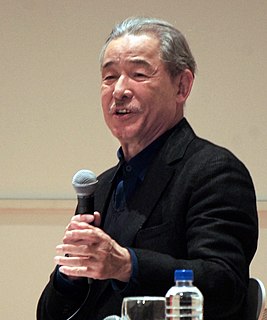A Quote by Paul Samuelson
Self-deception ultimately explains Japan's plight. The Japanese have never accepted that change is in their interest - and not merely a response to U.S. criticism.
Related Quotes
What is the most fascinating kind of self-deception to me, and a kind that isn't necessarily unhealthy, is what Friedrich Nietzsche called "strategic self-deception." The kind of self-deception that you can engage in with your eyes wide open. You do it because you say, "There's things that I couldn't accomplish without this kind of self-deception."
Those who have chosen the path of least resistance in life, who cannot bear to bring themselves to make a stern value-judgment in criticism of their own most intimate feelings, achieve what they deserve: not self-understanding but radical self-superficialization, not a discovered but a self-ascribed identity that explains nothing, reveals nothing, means nothing, and ultimately accomplishes nothing culturally or intellectually.
A very enjoyable meditation on the curious thing called 'Zen' -not the Japanese religious tradition but rather the Western clich of Zen that is embraced in advertising, self-help books, and much more. . . . Yamada, who is both a scholar of Buddhism and a student of archery, offers refreshing insight into Western stereotypes of Japan and Japanese culture, and how these are received in Japan.
I will not offer my thoughts on what Japan could and should have done, this is none of my business, it is the business of the Japanese leadership. But we should understand how practicable all our agreements are as a whole given the allied obligations Japan has assumed, how much independence there is in making those decision, and what we can hope for, what we can ultimately arrive at.
We can't attribute a long history of democratic traditions to Japan, either, but today Japan boasts a fully-fledged democracy in which governments change according to democratic procedures. It's no coincidence that the Taiwanese, Japanese, and South Korean economies are among the most innovative in Asia.




































